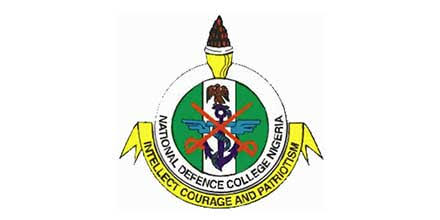Increased female representation in military key to operational success – Defence college
The National Defence College (NDC) has said that there is a need to increase the representation of women in the military and other security agencies in order to have effective outcomes from operations. The Commandant of NDC, Rear Adm Olumuyiwa Olotu, canvassed this during the opening session of a two-day workshop on “Promotion of Women’s […]

The National Defence College (NDC) has said that there is a need to increase the representation of women in the military and other security agencies in order to have effective outcomes from operations.
The Commandant of NDC, Rear Adm Olumuyiwa Olotu, canvassed this during the opening session of a two-day workshop on “Promotion of Women’s Network/Association in the Security Sector” organised by the college.
Olotu, who was represented by the Secretary of the college, AVM Titus Dauda, explained that balanced gender representation would significantly improve operational outcomes in the security sector.
Daily Trust reports that the workshop, with the theme: “Enhancing Gender-Responsive Security Operations and Community Dialogue Project in Nigeria (Phase II)”, created opportunity for wives’ associations of the army, navy, air force, police and civil defence to play crucial roles in achieving operational successes in the security sector.
Senate orders funding of Gombe-Maiduguri transmission line repair
Kano gov to sign amended emirates bill, as Assembly passes law today
Olotu noted that their presence underscored the crucial roles that families, particularly women, played in the strength and resilience of security institutions in an ever-evolving world.
He further said, “The security sector stands as a crucial area where balanced gender representation can significantly improve operational outcomes. Thus, it is important to recognise and give credence to the vital roles women continue to play within the sector, particularly the vital roles women continue to play in the studies in the sector.
“Pertinently promoting women’s networks and associations offers, among others, is an effective strategy that will continue to shape gender-responsive policies within the security institutions.
“More so, these networks provide platforms for mutual support, mentorship and skills sharing, while advocating for institutional changes that acknowledge and value women’s contributions.
“It is believed that by fostering a collective voice and shared purpose, these networks can enhance individual efforts and create widespread positive change within security institutions.”
On her part, the UN Women Country Representative in Nigeria, Ms Beatrice Eyong, said the UN Security Council had called on all member states to ensure that women were given space to contribute to peace and security.
Eyong, who was represented by Peter Mancha, Programme Specialist, Women, Peace and Security, UN Women, said the UN Security Council recognised that women were the ones that bore the brunt of violent conflicts, noting that women and children formed the majority in IDP camps in Nigeria.
She said men were the ones that would go and fight, get killed and leave women widowed and taking their responsibilities; playing the roles of both mothers and fathers.
She further said, “But the resolution is saying, why do we always see women as victims of violence? Why are we not seeing them as people that can contribute to peace? Why can’t we bring them to the table as we talk about peace and security issues? Because they have potential and we are not tapping into them and that is one of the reasons why we are where we are.
“So, we call on member states to develop national action plans to bring women on board to be actively engaged in peace and security processes.”
